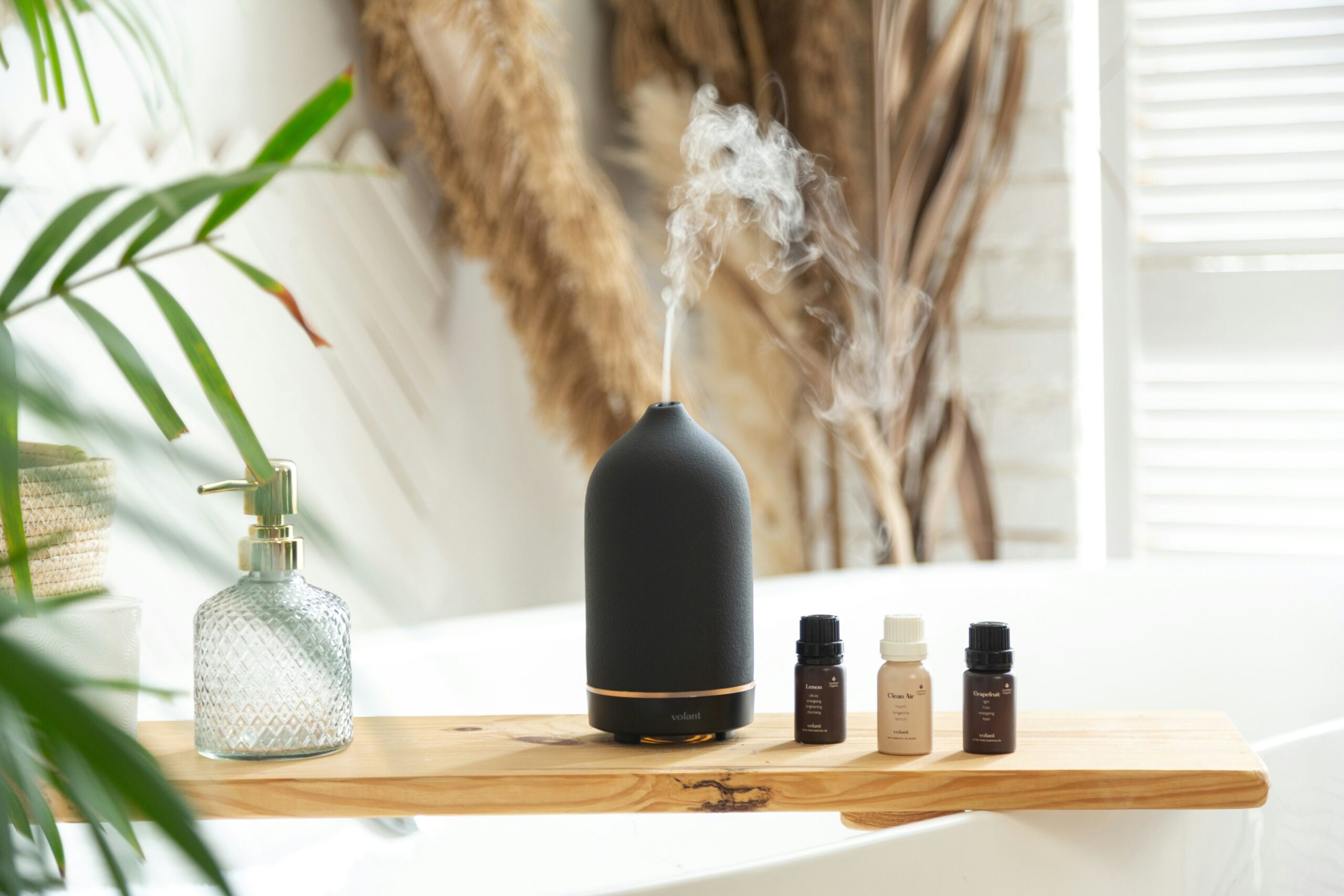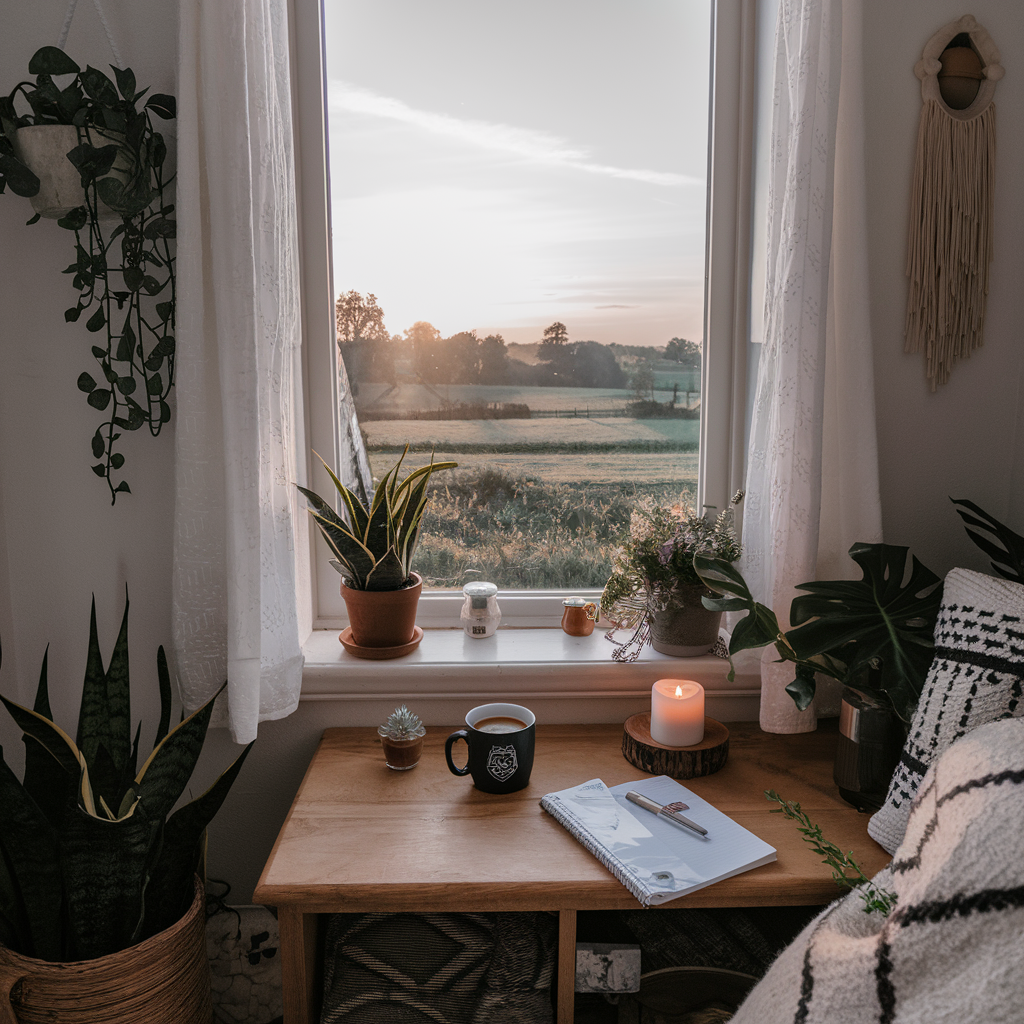8 Strategies Every Anxious Introvert Should Know

This post may contain affiliate links. If you click on any links and make a purchase, I may earn a small commission at no additional cost to you.
Thanks for your support!!
As an anxious introvert, the only way I can describe it is an uneasy feeling lurking in the background, and I can’t quite put my finger on what it is. As an introvert, I crave contentment and calm in my everyday life, but sometimes it feels almost impossible to grasp that feeling and hold onto it.
For me, anxiety tends to peak when I fall into a loop of overthinking. I spiral, dwelling on a future that doesn’t exist yet or replaying past moments that no longer matter. The key, I’ve learned, is gently pulling myself back into the present moment.
Focus on the day ahead or even just the next couple of hours. The past doesn’t matter, and the future isn’t here yet. The only thing you can control is the now.
Not all introverts experience anxiety, but when they do, it’s often tied to overthinking, a tendency many introverts know all too well. If you’re an anxious introvert, you’ve likely felt the constant tug-of-war between craving peace and feeling overwhelmed.
In this post, I’m sharing 8 practical, everyday strategies that can help bring you closer to the calm and contentment we all long for. These aren’t quick fixes, but small, intentional steps you can take to make life feel more manageable and fulfilling.
Understanding Anxiety in Introverts
What Does Anxiety Feel Like for Introverts?
Anxiety is a deeply personal experience, and it manifests differently for everyone. Each person has their own unique triggers, shaped by their circumstances, desires, and what they want their world to look and feel like.
For an anxious Introvert, the modern world can feel very overstimulating, leading them to feel overwhelmed and drained. Societal pressures contradict an introvert’s natural tendency for quiet and personal space.
The hustle culture creates a silent battle in us, between wanting peace and contentment and feeling like we must conform to a world that demands more… more energy, more interaction, more achievement.
This disconnect can cause an Introvert into a spiral of overthinking, feeling torn between meeting societal expectations and honouring our own need for balance and calm.
The key? its recognising that we don’t need to conform to these pressures, it’s perfectly okay to embrace our natural tendencies of solitude and quiet to pursue personal growth and peace on our own terms.
Strategies Every Anxious Introvert Should Know
1. Create the Right Environment: Your Space Shapes Your Mind
For me, as an anxious introvert, my surroundings play a huge role in how I feel.
A chaotic, overstimulating environment can send your nervous system into overdrive, while a calm, intentional space can soothe your mind and help you recharge.
Your environment can either nurture your introverted nature or drain it!!
This is where I found exploring the concepts of the Hygge lifestyle has helped me. Creating a hygge-inspired space, soft lighting, cozy textures, warm drinks, and an overall sense of tranquility can work wonders for calming an anxious mind.
When my surroundings feel calm and tidy, my stress levels naturally decrease, making it easier to process my thoughts and emotions.
The key is to design a space that aligns to you. Maybe that means a minimalist, clutter-free corner with neutral tones or a reading nook piled with soft blankets and candles. Whatever soothes your senses and helps you exhale is what you should lean into.
Looking for ideas on ways to transform your space into a calm, cozy environment… Check out my post on 10 Hygge Hacks For Introverts to Create Their Dream Cozy Space
2. Create Calming Routines
For introverts, routines provide structure and stability, creating a sense of calm that sets the tone for the day. Having a predictable schedule means fewer decisions to make, allowing us the freedom to focus on what matters to us most without using mental energy to think about what we need or should do next.
Routines can help an anxious introvert reduce anxiety, avoid burnout, and cultivate a life that supports our unique needs.
Key Elements of a Calming Routine:
- Schedule Downtime: Make sure to schedule time for rest and recharging. Treat it like a non-negotiable appointment. Just as you wouldn’t skip a meeting, don’t skip taking time for yourself
- Silence and Stillness: Incorporating moments of silence throughout the day, whether it’s through meditation, deep breathing, or mindfulness, helps to reduce stress and maintain clarity by calming your nervous system.
- Reading: Reading something inspiring daily helps me stay grounded and aligns with my tendency for introspection. Whether it’s a self-help book, an inspiring blog, or even just a good novel, reading helps to inspire you.
- Journaling: Journaling has been a game-changer in my routine. After getting up and making my cuppa, I sit and journal, whether it’s for a few minutes or longer, depending on what’s been on my mind.
Tip: Devise a set of daily prompts to make you aware of anything cluttering your mental space that you need to address or let go of.
For a more detailed approach to routines for introverts read this previous blog post Why your brain loves routine.
3. Create a Recharging Ritual
Introverts need time to recharge, after socializing or being in an overstimulating environment, introverts can feel drained and exhausted. Creating a recharging ritual can restore your energy and sense of balance.
A recharging ritual can be as simple or elaborate as you need, and it doesn’t have to be the same every day, but the key is consistency and intention.
Consider activities that bring you peace:
- Nature walk – Getting outside, even for a short stroll, can help calm your thoughts and reduce feelings of overstimulation. The fresh air, the sound of birds, or the crunch of leaves underfoot can help ground you.
- Get creative – Enjoying a solo activity like knitting, drawing, or painting can be restorative for an introvert, helping you shift focus onto something enjoyable and calming.
- Journaling – Writing at the end of the day can put a positive spin on a challenging day and declutter your mind, setting you up for a more restful sleep.
- Take a bath – Prioritizing self-care, such as relaxing in a warm bath, can be especially beneficial for an anxious introvert. Add calming elements like Epsom salts, essential oils, or soft music can help soothe you and promote relaxation.
Creating this sacred time not only replenishes your energy but also reminds you to prioritize your well-being. The ritual doesn’t need to be long, 15 minutes of focused quiet can make all the difference after a busy day.
Note: Find what works best for you, and remember: your recharge time is essential, not optional.
4. Focus on the Present Moment
Overthinking is a common pattern for anxious introverts, often leading to stress and anxiety about things beyond their control. Instead of letting your mind spiral into the “what ifs” of the future, bring your attention back to the here and now.
Being present helps you reduce overwhelm, improves focus, and allows you to truly enjoy the moment you are in.
If you are depressed you are living in the past. If you are anxious you are living in the future. If you are at peace you are living in the present.
Lao Tzu.
Focusing on one task at a time is key. Practice mindfulness, by fully immersing yourself in a single activity helps you stay grounded and calm, reducing feelings of overwhelm.
Neuroscientist Andrew Huberman explains that switching between activities can exhaust your brain and lower your efficiency. When you constantly switch tasks, your brain doesn’t have time to process and reset, which can zap your motivation and energy. Instead, stick to one task at a time and allow yourself to complete it before moving on.
Tip: Taking short breaks between tasks can also help your brain catch up and refocus, ensuring you maintain both clarity and energy throughout your day.
How to stay present:
- Practice mindful breathing: Take slow, deep breaths and concentrate on the rhythm of your inhalations and exhalations to anchor yourself in the present moment.
- Limit distractions: Turn off notifications or set your phone aside while focusing on a task. Try using noise-canceling headphones to block out distractions so you can fully immerse yourself in your activity and give it your full attention.
- Use grounding techniques: When you feel your mind wandering, try naming five things you can see, four things you can touch, three things you can hear, two things you can smell, and one thing you can taste. This helps bring you back to the present moment and reset your mindset.
- Set small, realistic goals: Break larger tasks into manageable steps and focus on completing them one by one taking short breaks in between, rather than worrying about everything at once.
5. Plan for Stressful Situations
For introverts, anxiety-inducing events like large social gatherings or overstimulating environments can feel overwhelming. Planning can help you approach these situations with a better mindset, minimizing the stress that can occur.
By creating a strategy tailored to your needs, you can navigate these moments without completely draining your energy.
Steps to Prepare for Stressful Situations:
- Set a time limit: Decide in advance how long you want to stay. Knowing you have a set timeframe can make the event feel more manageable.
- Have an exit strategy: Plan a polite way to leave, such as saying, “I have an early morning tomorrow,” or arranging for your own transportation so you’re not depending or waiting on others.
- Rehearse small talk: Prepare a few conversation starters or topics to ease the pressure of thinking on the spot during interactions.
- Identify a “safe zone”: Find a quiet corner or space where you can retreat for a few moments if the event feels overwhelming.
- Schedule downtime afterward: Plan some quiet, restorative time for afterwards to recharge.
6. Build a Supportive Inner Circle
For introverts, having a small, trusted group of friends can be a powerful source of comfort and encouragement. These relationships provide a safe space where you can be yourself, share your thoughts, and receive genuine support without feeling drained. Unlike large social events, a well-chosen inner circle can deepen connections that align with your introverted nature.
Tips to Nurture These Relationships:
- Prioritize quality time: Scheduling one-on-one or small group time allows for meaningful conversations rather than being intimidated by large social events.
- Communicate openly: Be honest about your need for downtime and boundaries while expressing gratitude for their understanding and support.
- Show appreciation: Small gestures like sending a thoughtful message, remembering special occasions, or simply saying “thank you” can strengthen bonds.
- Be a good listener: Pay attention when your friends share their experiences or challenges. Listening with empathy deepens trust and connection.
- Check-in regularly: Even if you prefer solitude, occasional check-ins like a quick text or a shared activity can keep the relationship warm and close.
7. Set Clear Boundaries
Setting boundaries is essential for anxious introverts to protect their energy and mental well-being. Without clear boundaries, it’s easy to become overwhelmed and overstimulated.
Boundaries help you communicate your limits and create space for the solitude and calm you need to recharge.
Note: It may make you feel like you are being selfish, but setting these boundaries for yourself is important for your well-being.
Tips for Setting Boundaries:
- Learn to say no politely but firmly: Practice phrases like, “I appreciate the invitation, but I need some time to myself”
- Be clear and concise: When communicating your boundaries, be direct and avoid overexplaining or apologizing. You don’t need to feel guilty for prioritizing yourself.
- Set limits on social engagements: Decide in advance how much time you can realistically spend in social situations without feeling drained.
- Create personal time rituals: Dedicate non-negotiable time each day for yourself to recharge, even if it’s just 15–30 minutes.
8. Use Self-Compassion as a Tool
Let go of perfectionism and be patient with yourself. It’s not easy to rewire your brain or shift to a new lifestyle, especially when you’ve spent years living a certain way, thinking in familiar patterns, and internalizing societal expectations. Change takes time, and can look different for everyone.
Instead of striving for instant transformation, lean into what feels good for you, one step at a time. Avoid getting caught up in the all-or-nothing mentality of trying to change everything at once. Focus on consistency with the small, meaningful changes you make and allow yourself the flexibility to adjust as needed.
Tip: When you’re feeling particularly anxious, take note of the triggers that surface and give yourself permission to adapt your approach with kindness.
Tips for Practicing Self-Compassion:
- Reframe negative self-talk: When you catch yourself being overly critical, pause and ask, “Would I say this to a friend?” Replace harsh thoughts with supportive ones, such as “I’m doing the best I can, and that’s enough.”
- Celebrate small wins: Acknowledge and appreciate even the tiniest progress you make. Whether completing a task or taking a step toward a healthier habit, give yourself credit for your efforts.
- Allow space for rest and reflection: If you feel overwhelmed, take a break without guilt. Resting isn’t a sign of failure; it’s your mind telling you to take a step back to recharge so you can keep moving forward at your own pace.
Remember: small progress is better than no progress at all.
Conclusion
Small Changes, Big Impact
As James Clear emphasizes in Atomic Habits, small, consistent actions can lead to transformative results. The key to creating lasting change is to start small. By focusing on manageable habits, you can build momentum and make sustainable progress toward your goals.
When you find strategies that work for you, tweak and adjust them as needed. What matters most is taking that first step, small consistent habits set the foundation for bigger results over time. Gradual changes allow you to build confidence, minimizes your anxious and overthinking tendencies, and allows you to create routines that feel natural to you rather than forced.
Remember, progress isn’t straightforward. It’s normal to face setbacks or times of slower growth. What’s important is to approach yourself with patience and kindness, knowing that every step forward, no matter how small, is a step toward a calmer, more balanced life.
As an anxious introvert, these small, intentional changes can help you create a fulfilling life that aligns with your natural tendencies. Take your time, embrace the journey, and trust that each step brings you closer to the peace and balance you deserve.
If you found this helpful, you might enjoy reading about why introverts are more prone to social anxiety. read more here




